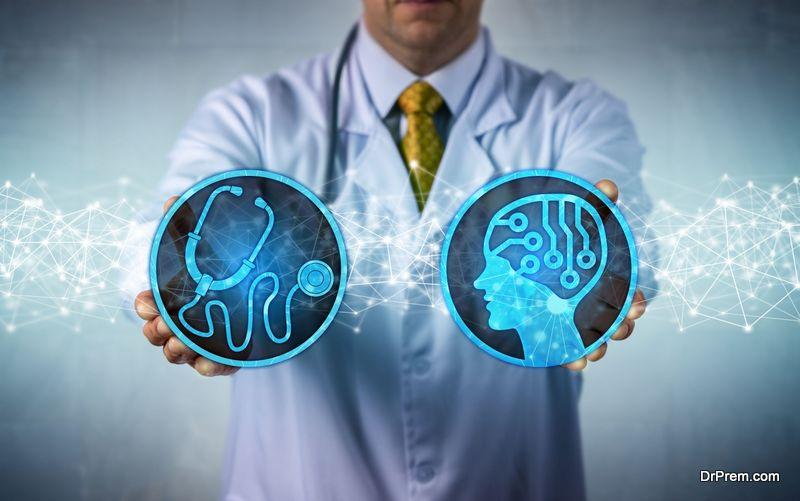The healthcare industry has been witnessing a remarkable transformation in recent years, driven by advancements in technology, research, and patient-centric care. As we venture into the future, the landscape of healthcare is expected to evolve even further, reshaping the way medical services are delivered and experienced. This article explores the potential advancements and trends that could shape the future of healthcare, aiming to improve patient outcomes, accessibility, and overall healthcare efficiency.
1. Precision Medicine and Personalized Treatments
One of the most promising trends in the future of healthcare is the shift towards precision medicine. Rather than applying generalized treatments, precision medicine tailors medical interventions to individual patients based on their genetic makeup, lifestyle, and other specific factors. Advancements in genomic sequencing and data analysis have enabled healthcare providers to identify genetic predispositions to diseases, allowing for early intervention and personalized treatments. This approach not only improves treatment effectiveness but also reduces the risk of adverse reactions and unnecessary medical interventions.
2. Artificial Intelligence (AI) and Machine Learning
Artificial Intelligence (AI) and Machine Learning (ML) are poised to revolutionize healthcare by streamlining diagnostics, improving decision-making processes, and enhancing patient care. AI-powered algorithms can analyze vast amounts of medical data quickly and accurately, aiding in early disease detection, predicting patient outcomes, and recommending personalized treatment plans. Additionally, AI-driven chatbots and virtual assistants can improve patient engagement and provide round-the-clock support, reducing the burden on healthcare professionals.
3. Telemedicine and Remote Healthcare
Telemedicine has seen tremendous growth in recent times, and this trend is expected to continue shaping the future of healthcare. With telemedicine, patients can access medical consultations and services remotely, overcoming geographical barriers and enhancing healthcare accessibility for rural or underserved populations. The integration of remote patient monitoring devices, wearable health technology, and virtual health platforms enables continuous tracking of patient data, allowing healthcare professionals to provide real-time interventions and proactive care.
4. Internet of Medical Things (IoMT)
The Internet of Medical Things (IoMT) refers to the interconnected network of medical devices, wearables, and sensors that gather and exchange health data. These devices can monitor patients’ vital signs, detect anomalies, and transmit data to healthcare providers in real-time. By facilitating remote patient monitoring, IoMT helps in the early detection of health issues, reducing hospital readmissions, and empowering patients to actively manage their health.
5. Blockchain Technology in Healthcare
Blockchain technology offers a decentralized and secure way to store, manage, and share health records. Patients’ medical data can be securely recorded in blocks, ensuring privacy, transparency, and accessibility to authorized healthcare providers. Blockchain’s potential to streamline data exchange between different healthcare institutions, ensuring accuracy and reducing administrative complexities, can significantly improve healthcare coordination and patient safety.
6. Nanomedicine and Targeted Therapies
Nanomedicineinvolves the use of nanotechnology in medical treatments, enabling targeted drug delivery and more effective therapies. Nanoparticles can be designed to deliver medications directly to specific cells or tissues, reducing side effects and enhancing drug efficacy. This approach has the potential to revolutionize cancer treatment and other chronic conditions by delivering drugs precisely to affected areas.
7. Virtual and Augmented Reality in Medical Training
Virtual and augmented reality technologies have the potential to transform medical education and training. Medical students and professionals can use immersive simulations to practice surgical procedures, hone clinical skills, and gain exposure to rare medical cases. These technologies provide a safe and controlled environment for learning, reducing the risk associated with traditional training methods.
8. Focus on Mental Health and Well-being
The future of healthcare is likely to emphasize mental health and well-being as an integral part of overall health. Increased awareness and reduced stigma surrounding mental health issues have led to a growing demand for accessible mental health services. Teletherapy, digital mental health platforms, and AI-powered mental health chatbots are expected to play crucial roles in providing support and intervention to those in need.
9. Data Privacy and Cybersecurity
As healthcare becomes more digitized, ensuring data privacy and cybersecurity becomes paramount. The future of healthcare will require robust security measures to protect patients’ sensitive information, prevent data breaches, and maintain trust in healthcare systems. Innovations in encryption, authentication, and data access control will be essential to safeguarding patient data.
Conclusion
The future of healthcare promises a transformative journey, where technology, research, and patient care converge to improve health outcomes and enhance the overall healthcare experience. Advancements such as precision medicine, AI and machine learning, telemedicine, and IoMT will shape a more patient-centric and efficient healthcare system. Emphasis on mental health, nanomedicine, and virtual reality training will address specific healthcare challenges. However, alongside these advancements, a strong focus on data privacy and cybersecurity is crucial to maintaining patient trust and ensuring the ethical use of emerging technologies in healthcare. As we embrace these advancements and trends, it is essential to keep ethical considerations at the forefront, promoting a compassionate and inclusive approach to healthcare for all.
Article Submitted By Community Writer




